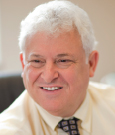In May 2015, Johnson & Johnson announced its partnership with New York University (NYU) School of Medicine in New York to create a first-of-its kind independent bioethics panel to review requests made to the company for compassionate use of an investigational drug and determine how the company should respond.
The 10-member Compassionate Use Advisory Committee is made up of an international group of doctors, ethicists, and patient advocates and is headed by nationally known bioethicist Arthur L. Caplan, PhD, Drs. William F. and Virginia Connolly Mitty Professor and Founding Director of Medical Ethics in the Department of Population Health at NYU Langone Medical Center. Dr. Caplan is also cofounder of the United Network for Organ Sharing, which matches cadaver organs with patients on the transplant waiting list.
Many of the criteria used to develop a fair distribution system for the United Network for Organ Sharing—such as a patient’s age, severity of a patient’s condition, and prognosis—are being considered for the Compassionate Use Advisory Committee, but the exact details for evaluating compassionate drug use requests and granting access to specific patients have not been finalized.
The pilot program, which was launched in July 2015 and began with one investigational medicine—Johnson & Johnson has not announced the name of the drug—will be expanded if the program is successful.
“Compassionate use occurs for two reasons,” explained Dr. Caplan. “One is that people who are very sick want to try an untested drug. The second reason is that there is a drug with proven or near-proven efficacy, but it is in scarce supply because it can’t yet be manufactured in a sufficient amount. We are going to be looking at requests for the latter-type drugs to start.”
To ensure complete independence and to avoid any conflicts of interest, funding for the Compassionate Use Advisory Committee will be paid directly to NYU School of Medicine. “I report to NYU School of Medicine, not to Johnson & Johnson,” said Dr. Caplan. “Now, it is still Johnson & Johnson’s money, I’m not saying they are not in the background, but I tried to get our committee to be as independent as I could. This is an interesting experiment. If it works, I think this type of program could help in a lot of settings, not just in the pharmaceutical setting, but also in governmental agencies and in nongovernmental organizations, because the issue of how to distribute scarce resources to desperate people is sadly very common.”
Leveling the Playing Field
Having this type of independent review panel tasked with weighing specific criteria for granting access to investigational drugs will create a more equitable, objective, and consistent system for desperate patients, said Dr. Caplan, and could help tamp down public outcry if the request is denied.
“Right now, it looks like somebody in the drug company makes a decision, and patients don’t know how or why the decision was made. Although we are not going to make public every detail of how our decisions get made, we are going to announce some of the criteria we thought about and describe the background of the experts on this committee and their level of independence. We don’t care if Johnson & Johnson makes money or loses money, our decisions will have nothing to do with that, so the perception of this group will be perhaps a little more trustworthy. This system has worked in organ transplantation, and I think it can work here,” said Dr. Caplan.
And no one, regardless of social or political status, said Dr. Caplan, will be able to jump to the front of the line and get favored treatment. “I think Johnson & Johnson came to us because it wanted to try a different approach to granting requests for investigational drugs. So, rather than having people calling saying, ‘I’m a senator and I need this drug’ or ‘I know the head of the Board of Trustees and I should get the drug,’ the company felt this was a better way to proceed, because all requests will be anonymized. I also believe there was a feeling that there was inequity in responding to the squeakiest wheels.” (Specialists seeking access to the investigational drug for a patient know they must submit their request through Johnson & Johnson’s website at janssenmedinfo@its.jnj.com.)
According to Amrit Ray, MD, Chief Medical Officer for Janssen Pharmaceutical Companies of Johnson & Johnson, the company is committed to respecting the Compassionate Use Advisory Committee’s recommendations.
“The Compassionate Use Advisory Committee will review requests for compassionate use and then return its recommendation to us. We recognize that these are decisions that are very important to patients and continue to take full responsibility for making the decision after hearing from the Committee. We have also made the commitment that whatever decision we make, we will be absolutely transparent with the Committee. I expect that in the majority of cases, we will follow the Compassionate Use Advisory Committee’s recommendation,” said Dr. Ray.
Streamlining Access to Investigational Drugs
Although drug companies and the U.S. Food and Drug Administration (FDA) have had a formal framework in place for granting access to experimental drugs outside of clinical trials since the early days of the AIDS crisis in the late 1980s, requests for expanded access to these drugs has intensified in the megaphone age of social media and as drugs have become more targeted. To meet the demand and provide quicker response, in 2009, the FDA broadened its rules for expanded access to unapproved drugs and recently announced a simplified process for physicians to obtain experimental drugs for their patients with serious or life-threatening illnesses and no other treatment options.
The new measure, “Individual Patient Expanded Access Applications: Form FDA 3926,” is currently still in development and is designed to take physicians just 45 minutes to complete. In 2014, the FDA fielded and approved over 1,800 applications for expanded access to investigational drugs, ranging from use in individual patients to larger protocols involving over 100 patients.
‘Right to Try’ Laws
In response to growing social media campaigns to make the compassionate drug use approval process even faster and easier, as of this writing, 22 states have passed so-called Right to Try laws, and 19 more states have legislation either pending or ready to be signed into law (see “‘Right to Try’ Laws: Helpful or Harmful?”). Although provisions in these statutes vary from state to state, essentially Right to Try laws allow terminally ill patients to bypass the FDA and make a request for drugs that have passed phase I trials directly to the drug manufacturer. But many experts say these laws are fraught with legal and ethical problems.
According to Patricia J. Zettler, JD, Associate Professor at Georgia State University College of Law and former Associate Chief Counsel for Drugs at the FDA, companies that wish to supply their drugs to patients still require FDA authorization before they are allowed to proceed.
“As a legal matter, these laws don’t do anything,” said Professor Zettler. “The groups pushing these laws have touted them as taking the FDA out of the process or as circumventing the FDA process, but the Constitution essentially says that federal law trumps state law, meaning that in the context of drug approval, states don’t have the option to circumvent or replace the federal process.”
In addition, the law doesn’t mandate that companies must grant a patient’s or physician’s request, nor are insurance companies required to cover any costs the companies may charge for the drug. “These laws are very, very poor because they create false hope,” said Dr. Caplan. “It is unethical to give people the notion that they are entitled to something when they are not going to get it. And these laws don’t address issues that people who are not terminally ill have, and they make up big numbers of people requesting unapproved drugs or devices.”
Although the FDA has not taken a position on Right to Try laws, Richard Klein, Director of the Patient Liaison Program in the FDA’s Office of Health and Constituent Affairs, agrees that these laws have the potential to add confusion to the process of gaining access to unapproved drugs. “The FDA has a mechanism in place, and it’s been a successful mechanism,” said Mr. Klein. “I don’t know what Right to Try has added, and it might also make the process more complicated because there are different laws in different states.”
To date, there are no reports of terminally ill patients actually having received a drug through Right to Try laws.
Making a Difference for Patients
Since Johnson & Johnson’s announcement of the establishment of the Compassionate Use Advisory Committee, the company has been flooded with requests from scientists, pharmaceutical and biotechnology companies, and patients for more information about the program, according to Dr. Ray.
“We have received calls from patients asking how they can help, and they have expressed feedback that they are pleased to see such a positive step forward,” said Dr. Ray. “They are really looking forward to hearing about the outcome of the pilot program, and their encouragement has caused us to redouble our efforts. The real goal here is to make a positive difference for our patients.”
“Everyone is watching and hoping that this experiment might provide a better way to go,” adds Dr. Caplan. “I was inspired by the positive experience with the United Network for Organ Sharing. People say Americans can’t ration or make tough decisions, but I know they can because I saw it with the transplant program. People understand how that system works, and they accept that it tries to be fair. So that gives me hope that we can duplicate that same sense of equity and fairness in the area of compassionate drug use.” ■
Disclosure: Dr. Caplan, Prof. Zettler, and Mr. Klein reported no potential conflicts of interest. Dr. Ray is an employee of Janssen Research & Development, LLC.



